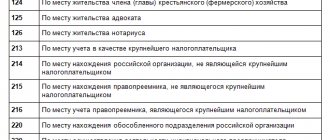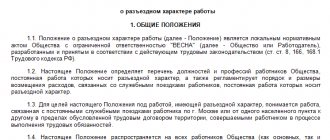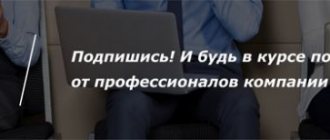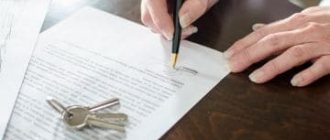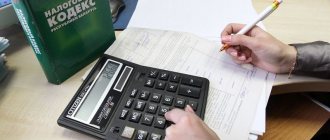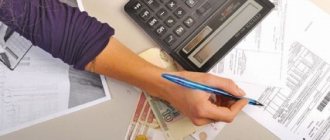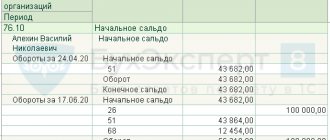Any control involves carrying out a number of activities to determine the degree of compliance with current legislation, rules, regulations, and requirements. Tax control, first of all, is aimed at preventing entrepreneurs from incorrectly paying obligatory payments to the state budget. By checking all types of resources of organizations, paying special attention to cash flow, persons authorized to carry out inspections carry out a number of legally defined actions.
Let's consider what purpose tax control measures are pursued, what they are, how the main measures differ from additional ones, and what the result is in the end.
What are tax control activities?
Taxes are a sphere of state interests. It is the state that sets the laws and rules of taxation, and it also controls their implementation.
The Tax Code has been adopted and is in force in the Russian Federation, as well as some other provisions relating to the payment of taxes and fees that are mandatory for entrepreneurs and organizations.
Tax control activities are a set of actions by tax officials, regulated by the Tax Code of the Russian Federation (clause 1 of Article 82 of the Tax Code of the Russian Federation), which is carried out with the aim of verifying compliance with tax legislation and international tax provisions in relation to:
- tax agents;
- individual payers of taxes and fees;
- payers of insurance and social contributions.
NOTE! The scope of tax control activities is on-site tax audits and consideration of their materials.
In some cases, specified in the Tax Code of the Russian Federation, some measures can be carried out outside of inspections by tax authorities.
Repeated on-site tax audit
The provisions of the current Tax Code of the Russian Federation define specific conditions, tasks, risks and criteria under which a repeat on-site tax audit of individuals and taxpayer organizations can be carried out, for example, if the existing declaration had certain errors.
The re-audit of taxpayers involves a past time period, the analysis, selection and control of which has already been carried out earlier.
Registration of a repeated inspection means the actual lifting of restrictions and prohibitions regarding the fact that two or more on-site inspections cannot be carried out in relation to one taxpayer during an annual period, at the place of registration.
Consequently, a refined re-inspection at the place of registration can be carried out regardless of the fact how many inspections have already been carried out before.
The current Tax Code of the Russian Federation provides for two main reasons on which a repeated updated inspection may be ordered at the place of registration.
Firstly, it can be carried out if such a decision is made by the head of a higher organization within a certain time period.
Secondly, a second inspection is permissible when the results of the first have been appealed to the authorized body. An appeal can be made by any interested person. The appeal is made in writing and submitted to the judicial authority. A positive appeal will result in the results being completely annulled.
The purpose and objectives of tax control measures
main goal follows - the identification and prevention of offenses regarding the Tax Code of the Russian Federation, and if detected, ensuring the responsibility regulated in the Tax Code. In other words, the purpose of tax control measures is to ensure tax discipline. The following tasks are aimed at achieving this goal:
- promoting economic state security;
- participation in control of the formation of state revenues;
- checking the fulfillment by an entrepreneur or organization of tax obligations to the state;
- monitoring the targeted application of tax benefits;
- suppression and prevention of tax offenses;
- punishment of offenders under the Tax Code of the Russian Federation.
Protocol of interrogation of a witness: a copy for the witness is required.
The rules for questioning a witness are regulated by Art. 90 of the Tax Code of the Russian Federation, which has now been supplemented by the rule that a copy of the protocol after its preparation must be handed over to the witness personally against signature. If a witness refuses to receive a copy of the protocol, this fact is reflected in the protocol.
Before the innovations under consideration, the Tax Code of the Russian Federation did not provide for the delivery of a copy of the interrogation protocol to the interrogated person. In practice, tax officials did not issue any copies and believed that they were not obliged to do so (Letter of the Ministry of Finance of Russia dated November 6, 2009 No. 03‑02‑08/82). The absence of a copy of the protocol made it difficult for the audited taxpayer and witness to protect their rights and legitimate interests. Now, when preparing objections to the audit report, the taxpayer will be able to use a copy of the protocol of the taxpayers’ employees and other persons who were interrogated, rather than relying on their memory.
What can be revealed as a result
Based on the results of tax control, the auditing authorities record the identified results. They may be:
- facts of violations of the Tax Code of the Russian Federation;
- arrears, that is, incomplete or missing tax accruals;
- failure to timely pay required fees;
- incorrect calculation of required payments;
- discrepancy between the income and expenses of the person being audited;
- improper documentation of tax payments (declarations).
* * *
Federal Law No. 302-FZ has entered into force, which is aimed at improving tax administration and reducing the administrative burden on business. The law made the following changes to Part I of the Tax Code of the Russian Federation:
- the time frame for conducting a desk audit of a VAT return has been reduced from three to two months;
- the subject of a repeated on-site inspection on the basis of an updated declaration with a reduction in the amount of tax can now only be the validity of the tax reduction based on the information changed in the updated declaration;
- a copy of the witness interrogation protocol will be handed to the witness without fail;
- as before, the taxpayer is not required to resubmit the documents, but now he must notify the tax authorities that the requested documents (information) were submitted previously. The notification must indicate the details of the document with which (as an appendix to which) they were submitted, and the name of the tax authority to which the documents were submitted. The deadline for submitting this notice is ten working days;
- the deadline for submitting documents as part of the “counter check” has been increased from five to ten working days;
- An addendum will now be drawn up to the tax audit report based on the results of additional tax control activities, in which the inspectors will record the essence of these activities, as well as the conclusions drawn from their results. The taxpayer had the opportunity to familiarize himself with such a document and prepare objections to the arguments contained therein, which will increase the objectivity of the audit decision.
[1] Federal Law No. 302-FZ dated August 3, 2018 “On Amendments to Parts One and Two of the Tax Code of the Russian Federation.”
Current issues of accounting and taxation, No. 11, 2018
Main tax control activities
Employees of the Federal Tax Service of the Russian Federation, relying on the Tax Code, as part of inspections can carry out a number of activities regulated by law:
- Inventory (carried out in accordance with clause 13 of Article 89 of the Tax Code of the Russian Federation) - reconciliation of data in the documentation with their real basis (assets).
- Inspection (regulated by Articles 91, 92 of the Tax Code of the Russian Federation) - any territory or premises that the inspected entrepreneur or organization uses to generate income (offices, workshops, workshops, warehouses, shops, etc.) can be subject to it.
- Request for documents and/or information (Articles 93, 93.1 of the Tax Code of the Russian Federation) - papers required for inspection can be officially requested from the company or person being inspected.
- Seizure of objects and documents (based on Article 94 of the Tax Code of the Russian Federation) is carried out when evidence is needed to confirm a tax violation.
- Expertise (according to Article 95 of the Tax Code of the Russian Federation) is carried out only in necessary cases; a competent specialist is invited under the contract. If he has established facts that are important for the results of tax control, they are formalized in an official expert opinion , the receipt of which is an independent measure of tax control. It may also include the expert’s own conclusions, even if they were not included in the request for examination.
- Any individual can be summoned as a witness This measure is necessarily followed by the next one - interrogation .
- The involvement of a translator (Article 97 of the Tax Code of the Russian Federation) is permitted in cases where it is necessary to solve pressing tax control problems. Carried out on a contractual basis.
IMPORTANT INFORMATION! Persons carrying out tax control have the right, approved by law, to use various technical means to record facts identified as a result of an audit: photography, film or video recording, audio recording, copying equipment, etc. The use of technical support for control must be reflected in its documentary support ( inspection protocols).
Does the Federal Tax Service have the right to assess additional taxes after additional measures have been taken?
There is a resolution of the Plenum of the Supreme Arbitration Court of the Russian Federation dated July 30, 2013 No. 57, which states: after a decision has been made based on the results of an inspection, the Federal Tax Service cannot change it in such a way that it worsens the position of the company or individual entrepreneur being inspected . In other words, additional taxes cannot be assessed.
However, this is a general case, and there are exceptions to it in judicial practice. An example is the resolution of the AS of the Ural District dated April 23, 2015 No. F09-1929/15. When filing an objection to the act, the taxpayer submitted documents that were not available to the inspectors during the on-site inspection. The study of these documents led to an increase in additional charges.
The taxpayer went to court, but it was supported by the tax authority. The judges indicated that the documents presented were related to violations that were identified during the inspection. And additional charges made on their basis are legal , since otherwise the taxpayer would have avoided paying tax on the taxable item that he had hidden. The Supreme Court, by its ruling of August 20, 2015 No. 309-KG15-9617, upheld the said decision.
Additional tax control measures
It happens, and often, that the materials collected during the inspection itself are not enough to make a conclusion. Clause 6 Art. 101 of the Tax Code of the Russian Federation allows tax authorities in such situations to resort to additional measures that should serve as confirmation or refutation of the identified fact.
IMPORTANT! Additional measures should not seek out new facts, but only clarify those already reflected in the protocol.
The form of implementation of additional tax control measures may be:
- interrogation;
- expertise;
- requesting documentation.
Tax authorities are not authorized to carry out any other additional activities. But during one inspection, several of the measures described above can be prescribed at once; the law does not limit their number.
The object of the inspection (entrepreneur or representative of the organization) will be informed about additional measures either during the consideration of the inspection materials or after its completion: they will be handed a decision on additional measures, drawn up according to the rules established by order of the Federal Tax Service of the Russian Federation dated May 8, 2015 No. ММВ-7-2/ [ email protected] This decision, which is not final but interim in nature, must indicate:
- justification – what caused the need for additional control measures;
- selected additional measures (list of forms);
- timing (final date).
The maximum duration of additional measures should not exceed 30 days; only for consolidated taxpayers, in exceptional cases, the period can be extended to 2 months (clause 6 of Article 101 of the Tax Code of the Russian Federation).
Analysis of materials from additional measures
Materials obtained during additional measures are added to the general tax audit materials. The same legal requirements apply to them as to the main ones, that is, the taxpayer has the right to take part in their consideration. To do this, he must express such a desire by submitting a corresponding application to the tax office. In 2 days, the tax authorities will announce the date of consideration.
NOTE! Inviting a taxpayer to review tax audit materials is mandatory at every stage - both after the main and after additional events. The absence of such notification is a gross violation of the verification procedure.
If the taxpayer has objections to the results of studying the materials, he can provide them in writing, setting out his views, supported by relevant documents. To do this, he has a ten-day period, starting from the date of completion of additional measures specified in the tax decision. Previously, this process was not regulated, but now it is legalized by Federal Law No. 130 of May 1, 2016.
Deadlines for conducting an on-site tax audit
The legislation of the Russian Federation and the current provisions of the Tax Code of the Russian Federation establish certain restrictions regarding the maximum period for conducting an on-site tax audit and for other actions and forms.
The total period from the start of the inspection to the receipt of documents with its results cannot exceed one and a half years.
The total time, support, extension, reduction and duration of an on-site tax audit may depend on many conditions and additional circumstances, for example, the volume of existing documents and information of the organization, the complexity of carrying out a certain event and other nuances that have a direct impact on the amount of time period, on identification of a violation or objection.
The time for direct inspection and control of each branch of the taxpayer’s main enterprise, for example, an LLC, is one calendar month. Extension or change of the deadline and form is within the competence of the tax inspector, but, as a rule, these rights, forms and criteria are used quite rarely.
The established rules of the current Tax Code of the Russian Federation provide that in situations where any violations and objections were accidentally discovered by an authorized person during the selection of documents, in the period after the completion of the manager’s check, these violations and objections cannot be taken into account and accepted for consideration.

